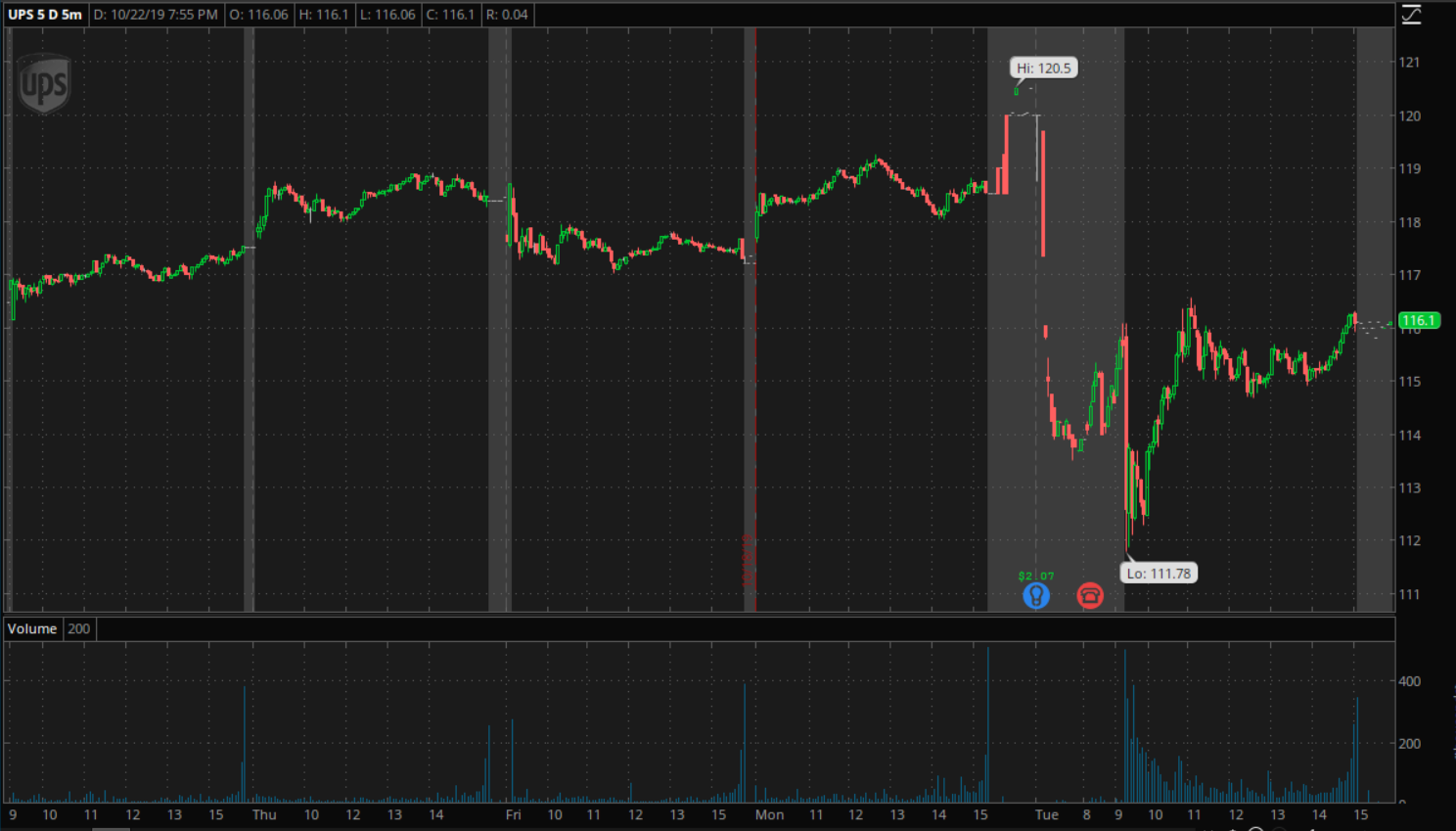I watch markets for a living and have done for well over thirty years, but there are still times that a market move in reaction to news makes me scratch my head. Take yesterday, for example, when UPS (UPS) reported earnings that narrowly beat expectations and the stock reacted initially by falling 7.5%. Obviously, the EPS beat itself wasn’t the reason for that, it was other news that came with the release, but the market’s spoiled child-like reaction to that news makes no sense at all.
In this day and age, when the internet demands instant reaction, it was quite funny yesterday morning, seeing commenters scrambling to explain why UPS tanked on a penny beat of earnings expectations. The first few articles I saw focused on the revenue "shortfall." Sales were $18.32 billion, which, admittedly, was short of the expected $18.35 billion, but without some other catalyst for a drop that would just be seen as a rounding error.

The next reason offered was, if anything, even more of a stretch. It was said then and seems to be still said in many places now, that the drop reflects worry over the effects of the trade war with China on the company. What I don’t get is how those worries are supposed to have increased after this report. The trade war has been with us for a while, and so far, UPS has shown that they are handling its effects very well. What's more, their Q3 results showed they are continuing to do so. An international company that manages to grow profits despite the best efforts of politicians is doing something right. Punishing their stock because the policies may get even more stupid in the future is just not justifiable, let alone fair.
Obviously, something else was at play. The market reaction seems to be in response to the announcement contained in the earnings release that UPS’s COO, Jim Barber, was retiring. Barber is a UPS success story, but one that is actually not that rare within the company. He started as a delivery driver 35 years ago and rose through the ranks. He is currently overseeing several key areas of the company, including global small packages, freight and the supply chain and is universally seen as having done a superb job, so he will be missed. His leaving those roles, however, isn’t what upset traders.
They seem to have been irked by his departure because he had been widely touted as the next in line for the CEO job. That’s right, UPS’s valuation dropped by around $8 billion because something expected by the market is now not going to go exactly as planned. Nobody knows yet who the next CEO will be, or when they will take over, but the company’s stock was sold off because the market isn’t getting exactly what they wanted. That is the reaction of a spoiled child, not rational, intelligent adults.
The fact is that UPS is positioned to benefit from what many regard as the biggest economic and societal transformation for decades, the move towards online shopping by consumers. Their latest earnings show that they have a vision as to how to exploit that position and are executing well. Barber would no doubt have made a great CEO, but there are plenty of others who will also be good in the job when the time comes.
The selloff yesterday, therefore, is an opportunity for investors to pick up the stock at a discount.
The views and opinions expressed herein are the views and opinions of the author and do not necessarily reflect those of Nasdaq, Inc.

